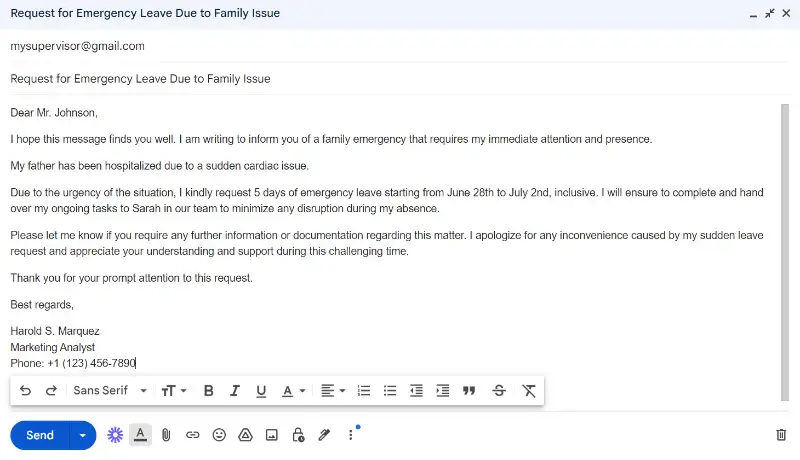Choosing a job can be one of the most challenging decisions a person makes. With so many options available, it can be overwhelming to know where to start.
Fortunately, 16 key career clusters provide a helpful framework for interpretation of the broad categories of occupations and the skills needed for each.
Whether you're exploring opportunities as a student, planning a professional shift, or helping someone else with their job search, understanding these career clusters can guide you toward a fulfilling path.
What is career cluster?
A career cluster is a group of related occupations or industries that share similar skills, knowledge, and training requirements.
It organizes professions into categories to help students, job seekers, and workers understand the range of possible career pathways, the education or certifications needed, and the skills required.
Create your professional Resume in 10 minutes for FREE
Build My Resume
How to choose the right career cluster?
- Think about what activities, subjects, or industries interest you.
Do you enjoy working with technology, helping people, designing things, or solving problems?
Many schools or online platforms offer career interest inventories or personality tests that suggest clusters based on your preferences.
- Reflect on your natural talents and abilities.
Are you good at math, working with your hands, or organizing projects?
Your strengths should align with the types of skills required in specific clusters.
For example:
If you excel at problem-solving and analytical thinking, the STEM (Science, Technology, Engineering, & Mathematics) field might be ideal.
- Think about what kind of environment makes you most comfortable.
Some career clusters require to be in an office, others may need physical labor, or working with technology.
Consider the schedule and demands of certain positions. Do you prefer flexible hours or more predictable, structured work?
- Research the current and future demand for jobs in each cluster.
Some sectors may offer more opportunities than others. Check resources like government labor statistics or industry reports to understand growth trends.
After doing all the research, take some time to reflect on what feels right for you. Sometimes, the best way to make a decision is by trusting your instincts about which career cluster will bring you the most fulfillment.
What are 16 career clusters?
This list of career clusters was developed by the U.S. Department of Education in collaboration with the National Career Clusters® Framework.
Agriculture, Food & Natural Resources
$35,000 – $70,000
Careers focused on producing, processing, marketing, and distributing food, as well as managing natural resources and agriculture.
- Skills: Knowledge of biology and ecology, physical stamina, problem-solving, teamwork.
- Education: High school diploma, associate’s or bachelor’s degree in agriculture, environmental science, or forestry.
Sample jobs:
- Agronomist
- Veterinarian
- Fish and Game Warden
- Food Scientist
- Environmental Engineer
Architecture & Construction
$40,000 – $85,000
Careers related to designing, planning, managing, and building infrastructure, including homes, buildings, and roads.
- Skills: Math, design, technical drawing, teamwork, physical strength.
- Education: High school diploma, vocational training, associate’s or bachelor’s degree in architecture or construction management.
Sample jobs:
- Architect
- Civil Engineer
- Carpenter
- Electrician
- Construction Manager
Arts, Audio/Video Technology & Communications
$30,000 – $80,000
Careers in designing, producing, exhibiting, performing, writing, and publishing multimedia content.
- Skills: Creativity, communication, technology proficiency, attention to detail.
- Education: Certificate, associate’s or bachelor’s degree in media arts, communications, or fine arts.
Sample jobs:
- Graphic Designer
- Audio Engineer
- Journalist
- Video Editor
- Actor
Business Management & Administration
$50,000 – $100,000
Careers in planning, organizing, and managing business operations.
- Skills: Leadership, communication, problem-solving, organizational abilities.
- Education: High school diploma, associate’s or bachelor’s degree in business administration or management.
Sample jobs:
- Human Resources Manager
- Business Analyst
- Office Manager
- Administrative Assistant
- Entrepreneur
Education & Training
$35,000 – $80,000
Careers focused on providing education and training to individuals of all ages.
- Skills: Communication, patience, organization, motivational skills.
- Education: Bachelor’s degree in education, teaching credential or certification.
Sample jobs:
- Teacher
- School Counselor
- Librarian
- Corporate Trainer
- Instructional Designer
Finance
$60,000 – $130,000
Careers related to managing, planning, and providing financial and investment services.
- Skills: Math, analytical thinking, attention to detail, ethical judgment.
- Education: Bachelor’s degree in finance, accounting, or economics.
Sample jobs:
- Financial Analyst
- Investment Banker
- Auditor
- Accountant
- Loan Officer
Government & Public Administration
$45,000 – $90,000
Careers in government functions, including national security, governance, and revenue collection.
- Skills: Critical thinking, communication, understanding regulations, organizational.
- Education: High school diploma, bachelor’s degree in political science, public administration, or law.
Sample jobs:
- Policy Analyst
- City Manager
- Tax Examiner
- Urban Planner
- Police Officer
Health Science
$50,000 – $120,000
Careers related to health care, including therapeutic services, diagnostics, and research.
- Skills: Medical knowledge, attention to detail, empathy, teamwork.
- Education: High school diploma, associate’s, bachelor’s, or advanced degree in health science or medicine.
Sample jobs:
- Nurse
- Physical Therapist
- Pharmacist
- Radiologist
- Medical Technologist
Hospitality & Tourism
$35,000 – $75,000
Careers focused on managing and promoting travel, food, and recreational services.
- Skills: Customer service, communication, cultural awareness, organizational.
- Education: High school diploma, associate’s or bachelor’s degree in hospitality management or culinary arts.
Sample jobs:
- Hotel Manager
- Event Planner
- Chef
- Travel Agent
- Tour Guide
Human Services
$30,000 – $60,000
Careers centered on helping individuals with various needs, including social, mental, and physical well-being.
- Skills: Empathy, communication, problem-solving, listening.
- Education: Bachelor’s degree in psychology, counseling, or social work.
Sample jobs:
- Social Worker
- Counselor
- Substance Abuse Specialist
- Child Care Worker
- Community Service Manager
Information Technology
$70,000 – $140,000
Careers involving computer and information systems, including programming, network management, and data analysis.
- Skills: Technical, problem-solving, analytical thinking, adaptability.
- Education: Associate’s or bachelor’s degree in computer science, information systems, or IT.
Sample jobs:
- Software Developer
- IT Support Specialist
- Network Administrator
- Cybersecurity Analyst
- Data Analyst
Law, Public Safety, Corrections & Security
$45,000 – $110,000
Careers focused on legal services, law enforcement, and emergency response.
- Skills: Critical thinking, physical fitness, ethical judgment, communication.
- Education: High school diploma, associate’s or bachelor’s degree in criminal justice or law.
Manufacturing
$40,000 – $75,000
Careers related to producing goods and managing processes.
- Skills: Mechanical, problem-solving, attention to detail, teamwork.
- Education: High school diploma, vocational training, or associate’s degree in manufacturing or engineering.
Sample jobs:
- Machinist
- Welder
- Quality Control Inspector
- Industrial Engineer
- Production Manager
Marketing
$55,000 – $115,000
Careers that promote products, services, and brands to consumers.
- Skills: Creativity, communication, analytical, knowledge of consumer behavior.
- Education: Bachelor’s degree in marketing, communications, or business.
Sample jobs:
- Marketing Specialist
- Brand Manager
- Social Media Coordinator
- Advertising Copywriter
- Market Research Analyst
Science, Technology, Engineering & Mathematics (STEM)
$65,000 – $135,000
Careers in scientific research, engineering, and math-related fields.
- Skills: Analytical thinking, technical, problem-solving, attention to detail.
- Education: Bachelor’s or advanced degree in science, engineering, or mathematics.
Sample jobs:
- Biochemist
- Civil Engineer
- Mathematician
- Astronomer
- Robotics Engineer
Transportation, Distribution & Logistics
$40,000 – $90,000
Careers focused on managing and moving people and goods via various transportation modes.
- Skills: Mechanical, problem-solving, organization, logistics management.
- Education: High school diploma, associate’s degree, or vocational training in logistics or transportation.
Sample jobs:
- Truck Driver
- Logistics Coordinator
- Airline Pilot
- Automotive Technician
- Supply Chain Manager
Conclusion
Career clusters are designed to help you explore a variety of fields and find the one that best suits your passions, skills, and goals.
By understanding the different industries and roles within each cluster, you can make a more informed decision about your professional trajectory.
Use this knowledge to take the next step in your professional journey and open doors to exciting career possibilities.
Create your professional Resume in 10 minutes for FREE
Build My Resume



















































